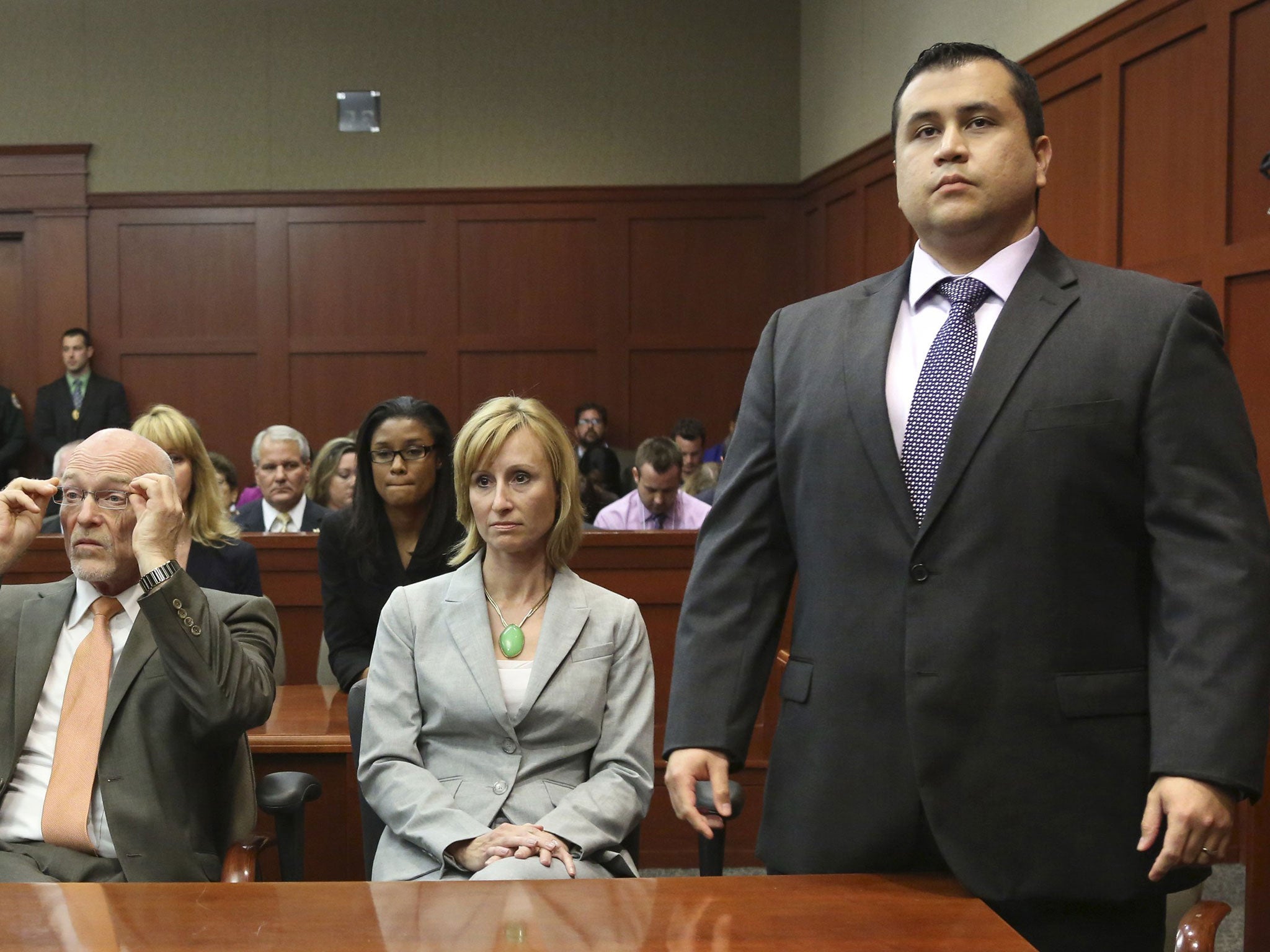The Zimmerman trial showed an exciting new approach to murder cases: put the victim on trial
So the genius of the legal system is that the case focussed on the way Trayvon Martin should have reacted when pursued by a neighbourhood watch official with a gun


Gun-supporting Republicans in America have missed an opportunity to make their argument that more weapons makes us safer.
Following the acquittal of George Zimmerman, who shot 17-year-old black man Trayvon Martin dead because he “looked like he was up to no good”, they should have declared: “This shows we need to give handguns to every black teenager. Only when they’re all armed and ready to fire on any suburban white who looks menacing will we be truly safe.”
The law seems to be that Zimmerman was innocent as he genuinely believed the lad was “up to no good”. So it wasn’t enough that Trayvon Martin was coming back from the grocers; he had to look like he was coming back from the grocers. Instead of blaming the gunman, maybe the black community should send its teenagers to acting school to learn to look like they’re up to good.
Otherwise this will keep happening, with court cases reading like a theatre review. The defendant will say: “Sadly, the victim failed to convey the full range of innocent expressions required by this demanding role, his inadequate portrayal of angelic intentions leaving us no choice but to gun him down by the car park.”
It was also stated that Trayvon Martin appeared suspicious because he was walking slowly. Presumably if he’d run that would also have been grounds for suspicion, so again it’s up to black people to work out exactly the right speed they should walk at to avoid making people shoot them.
This case was further complicated by the fact that while Zimmerman had a handgun, Trayvon Martin had a packet of Skittle sweets. If Zimmerman had seen the television adverts, he might have thought the teenager could turn him into a pile of multicoloured confectionery, and that may be why he was looking up to no good, so it was hardly up to him to explain why he shot him.
So the genius of the legal system is that the case revolved around the way Trayvon Martin should have reacted when pursued by a neighbourhood watch official with a gun. Did he argue, did he scream, did he resist were the crucial questions.
This is an exciting new approach to murder cases, in which instead of the antiquated method of hassling the defendant, it’s the victim who’s put on trial. Crimewatch could begin: “Tonight we investigate the horrific murder of a man in Peckham. Did you see the person who was shot dead on the pavement? What direction did he head off to? What did he do to cause all this trouble? Which sweets was this monster carrying? Your evidence could be crucial.”
So now the call has gone out across America, that the most important thing is for black people to stay calm. It’s basic word association – the first word anyone thinks of after “We’ve acquitted a chap who shot dead a teenager for carrying Skittles” is – “calm”.
To help this calm, one of the jurors explained her reasons for finding Zimmerman not guilty, saying of Trayvon Martin: “He didn’t have to do whatever he did.” It’s surprising more murder trial defendants don’t try this defence, saying: “As I see it, your honour, the victim didn’t have to do that thing, I can’t recall what, but whatever it is, that they did.” Then the judge could say: “In that case you’re free to go, Mr and Mrs West”, and we could all carry on without any fuss.
In case that wasn’t enough to assure calm, most newspapers, TV stations, and the President insisted on it. Because the worst thing about a boy being shot dead and the gunman being let off is if we get upset about it.
Calm is the way to make progress – that’s the attitude that’s pushed back racists in America in the past. How was slavery abolished in the southern states? By the four-year long American Civil Calm, that’s how. The Confederates broke away, insisting on the right to run a slave economy, but Abraham Lincoln said: “Don’t get worked up. That will only make things worse.” So the North all had a relaxing sauna and the slave owners were finished.
Then in the 1960s, segregation and lynching were overturned by the civil rights movement, with its most potent weapon of staying calm. James Brown sang: “Say it out proud, I’m calm and not loud.” Bob Marley cried: “Get up, stand up, put the kettle on”, and no one got worked up, which is why they did so well.
You might think, if you’d not being following the case closely, that the appeals for calm ought to be made to white people in suburban areas not to set up semi-military neighbourhood watch patrols with a keenness for firing on black teenagers, which could, if we’re being picky, be described as straying from calm. And an appeal for calm could be made to the 24 states to repeal the law that allows such executions to take place, as long as the gunman believes the victim is up to no good, a situation that’s calm in the same way the Wild West was calm.
So don’t protest, about the legal system, or the police that didn’t inform the boy’s parents he was dead, or the way Zimmerman insists that black people should now apologise to him. Go for a relaxing stroll, and it will all come right by itself, like it always does.
Twitter: @mrmarksteel

Join our commenting forum
Join thought-provoking conversations, follow other Independent readers and see their replies